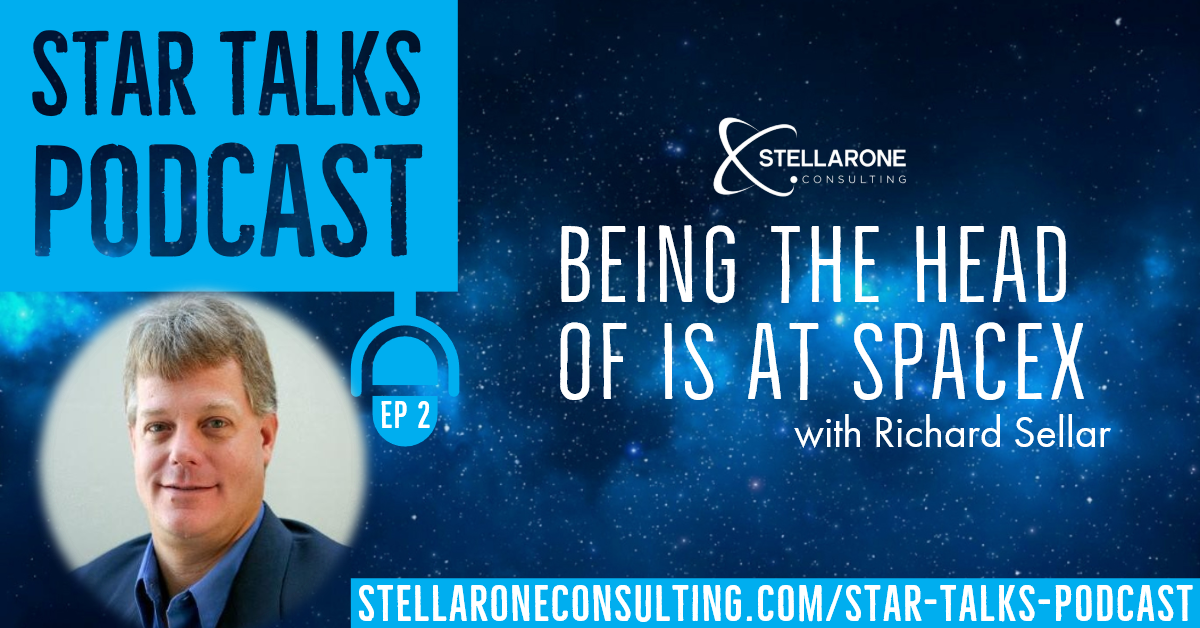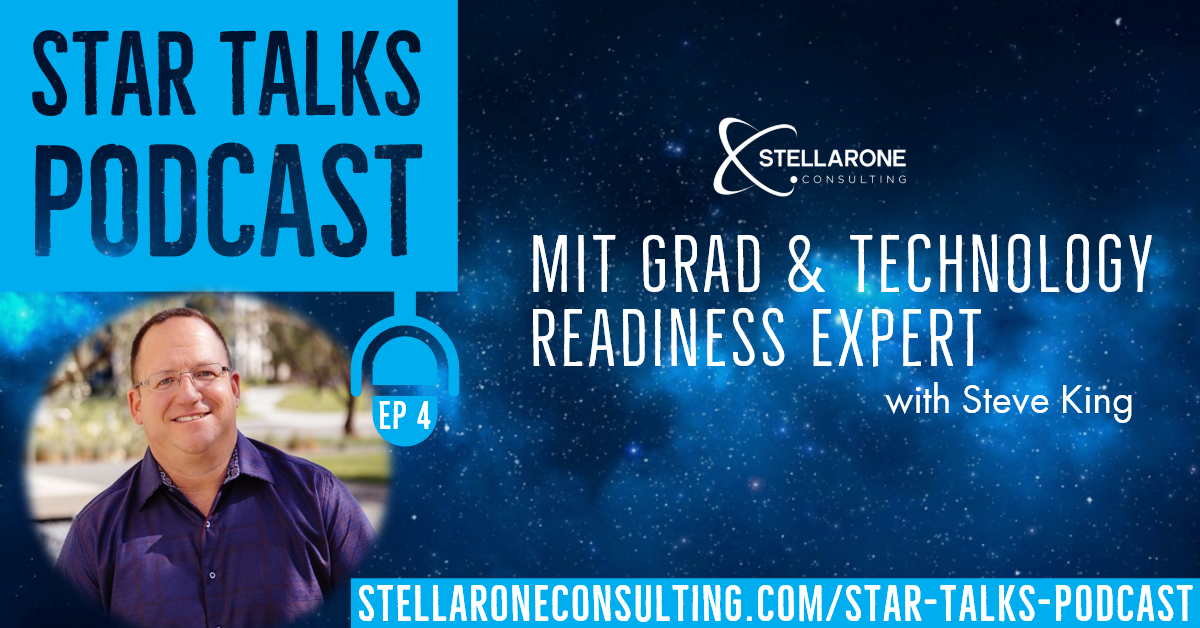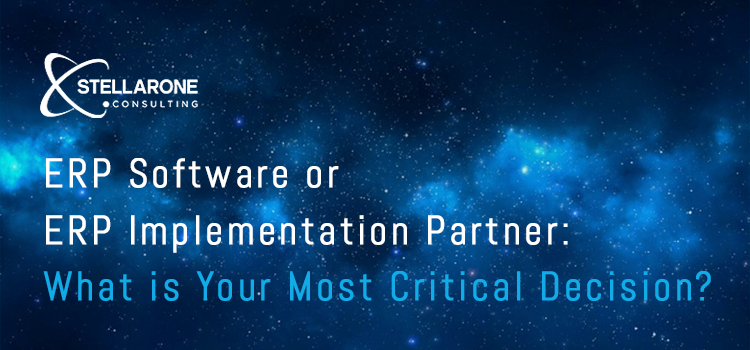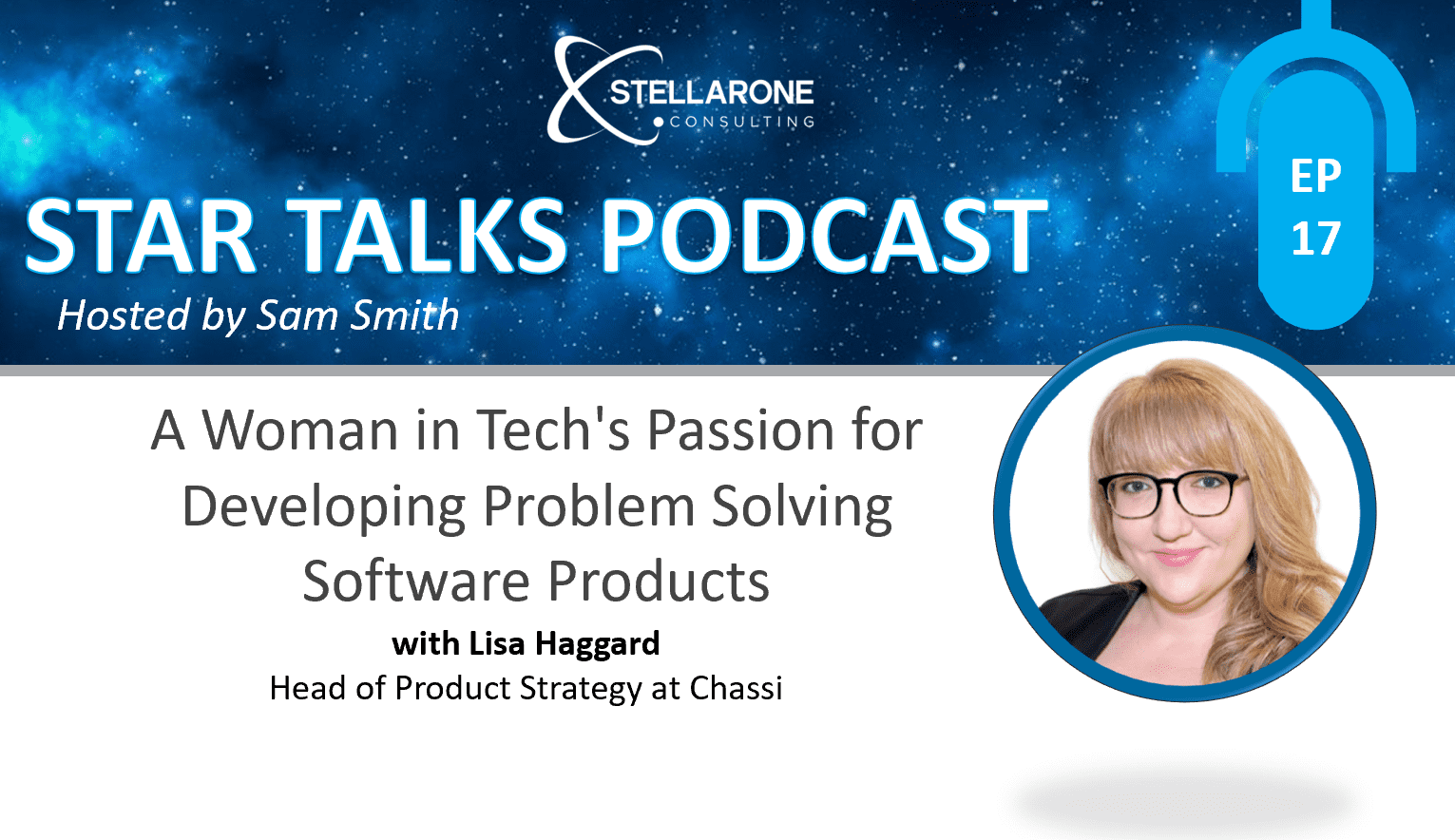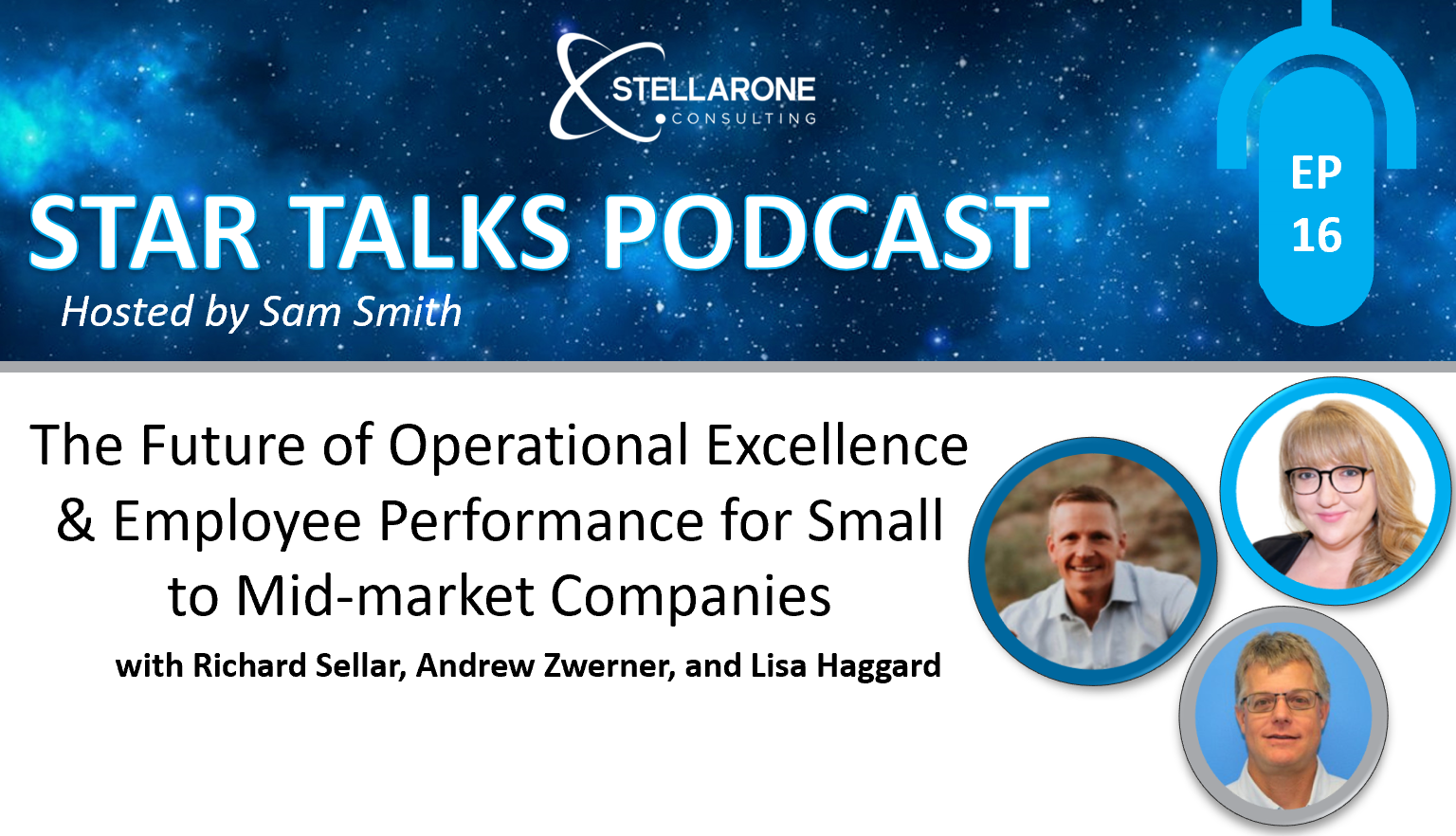Star Talks: Episode 3 with Scott McKenzie: Star Talks is the podcast of small conversations that inspire you to do big things and on this episode Scott McKenzie, Regional Sales Manager at DataMax Software Group, shares his expertise with working in the Supply Chain Industry.
In this episode of Star Talks, Scott McKenzie sits down with us to talk about:
- He's become a renowned supply chain expert by developing warehouse management software and selling his intellectual property
- Trends are affecting manufacturing and wholesale distribution property
- Small-to-medium sized businesses can sell anything by using automation to build scalable logistical systems
About Scott:
The supply chain guru has spent 25-years working in the supply chain industry. Being on the front-lines in various roles, Scott has helped lead companies to improve their bottom line, increase productivity, and improve accuracy. In 2005, Scott was cover of Business Solutions Magazine. Scott's skills and endorsements highlight his experience within solution selling, account management, direct sales, and much more.
Duration: 00:23:00 | Recorded: May 10th, 2019
Ways to connect with Scott and the Stellar One Team:
Scott McKenzie - LinkedIn | RFgen Website
Podcast Episode Links : Apple Podcasts | Google Play | SoundCloud | Stitcher | Spotify
See all Episodes here - Star Talks Podcast
Stellar One Consulting Social Media - Facebook | LinkedIn | Twitter
Here's the episode transcript:
Scott, thanks for joining us today.
Scott: (01:21)
Absolutely excited to be here. Thanks Sam.
So Scott, tell us where are you from? What was it like growing up?
Scott: (01:28)
Uh, so I am one of the few born and raised here in Southern California and have stayed in Southern California. So I'm born and raised in Huntington beach, spent most of my life growing up, surfing around here and it's, uh, it's been a great place to stay. Um, traveled all over the U S and I've seen the snow and I prefer to come back to the 80 degree weather. Thank you.
Right on, man. So I saw on your LinkedIn profile that you coached little league baseball for 12 years. What, what's that all about?
Scott: (01:57)
Yeah, so, uh, I've got three boys and, um, you know, I figured as a part of staying involved in my kids' lives, um, and you know, as they grew up, one way to do that was to coach baseball. Uh, and it was, it was just, it was an interesting process, you know, uh, having three boys, um, we had a lot of fun, um, with, you know, with these guys. And, uh, I've got a passion for coaching and teaching. And so that enabled me. I really, when I first, when we first started out, I actually didn't know really much about baseball. I played little league when I was a kid. Um, but I had to, I had to learn how to teach and then learn how to coach. Uh, and it just, it was, it was a lot of fun. We just had a great time all the years and that the kids kept coming back and back and back and I just kept going. So, um, it just, it's a lot of fun.
That's awesome. So you grew up in Southern California. Are you a Dodgers fan or an angels fan?
Scott: (02:52)
Oh, definitely an Angels fan. Definitely an Angels fan.
Okay. Right on. So over the last 25 years, been in the supply chain industry. You've played many different roles, uh, from enterprise level sales executive to implementation consultant to a project manager to a technical support consultant and even a programmer. So is that why they call you the supply chain guru?
Scott: (03:14)
Yeah, yeah. That's why I have, I have any self proclaimed a supply chain guru. Um, yeah. I, you know, like, uh, my, my experience spans a lot of different roles in the last, you know, I've been in this industry for over 25 years now. Um, and I started out as a tech support guy on the phone before the internet existed, you know, supporting barcoding and a barcode and a barn, excuse me, barcode printers. And that evolved into working as a sales guy and selling barcode printers, um, in the local LA area, which, which evolved into working. I worked for Avery Dennison, which was Monarch marking systems at the time, selling labels and printers. And that was sort of the, uh, the, the item marketing side of the supply chain. Uh, and then I went off to actually start a business. Uh, and part of that was we built a, uh, a software and, um, and then also resold and implemented and implemented a software from a company called cellos that used to be called radio beacon at the time.
Scott: (04:25)
And when you run a business, it's an interesting process, right? Not only are you the owner of the business, the salesperson, you're the technical guy, you're the one making it worth your doing the implementations. And so as we were growing that business, I had to fill all of those roles and learn what it meant to be a project manager, be the guy in the front line doing the implementation, uh, and then being the guy on the back end that did the support. So I get to end and so I can sit. And part of that I was also doing some programming and I actually got a technical background. I actually went to school at Cal state Fullerton for computer science and engineering. And so having done all of those roles over all of those years, I've really touched kind of every portion from being on the customer side to being on the sales side, to being on the support side. And so I think to me, that gives me the right to call myself the supply chain guru.
Well, out of all those rules, what, what one do you enjoy being in the moment?
Scott: (05:22)
Oh, without a doubt is definitely the sales role. Um, you know, I prefer helping customers really paint the vision of what's possible, uh, and leading them along the way. Uh, and to me that it really is the most fun part and most enjoyable part of that whole process.
So where did all this come from? Why are you so passionate about this supply chain?
Scott: (05:47)
Yeah, you know, uh, for me, so it's funny because having, you know, some people switch industries, some people move around. Um, I have chosen consciously to stay in the supply chain industry pretty much my entire career. Um, really for the simple fact that I've never gotten bored with it. I mean, it is constantly evolving. It is constantly changing. Um, you know, part of what evolves and changes is the technology. I mean, today we're starting to see, uh, robots actually making their way into the supply chain. And I mean, you know, I mean, how cool is that? We're talking about robots, right? So, you know, sometime in the next five to 10 years, the conversation around supply chain, um, you know, is gonna revolve around even heavier, heavier automation and so on. Passionate because it's really, it's just fascinating. It's interesting. Mmm. It is allowed me to be in sort of an agent of change with my customers because there are so many things and so many improvements that people, that companies can make inside of their supply chain. It's just, it's always interesting. There's always something cool happening.
So I read about the warehouse management system that you developed. In fact, I found a pretty awesome picture of a slightly younger Scott McKenzie, uh, when you guys got some notoriety for what you guys were developing. Um, but this WMS product that you built, who, what was it for? What was this problem you were solving? Who was it meant to serve?
Scott: (07:20)
Yeah, that was a slightly younger, slightly chubbier Scott McKenzie. So, um, yeah, yeah, that was a, it was a publication called business solutions. That was my, my five minutes of fame. I still have about 10 copies. That thing flipped around somewhere around the office. Um, so I worked for, at one point I worked for her when I mentioned that I worked for every Dennison and I doubled my position there for one of the years that I worked there was as a bar or a reseller channel manager. And what I observed was, this is, this is back in 2000, 2000, 2001 that there were a lot of upcoming warehouse management software companies. They were really starting to come out. Um, and those, those companies were my customers. I was selling them printers and supplies and you know, I was that piece of it. But what I noticed was for smaller companies, for the mid size and small guys, there really were not very many options out there.
Scott: (08:18)
Yeah. And so a business partner and I got together and uh, what we did was we built this mini WMS or mini warehouse management system. In fact, I wrote the beginnings of it in Microsoft access, uh, as a programmer. And, uh, we went out there, we sold it, we at, what we did was we interfaced it into QuickBooks so that we could really help the smaller guys. And give them some sort of a solution. Um, we were definitely ahead of our time. We were right on the bleeding edge with QuickBooks. In fact, at the time, uh, it was their second year that they had, uh, opened up the interface to developers like us. Um, the opener, we sold it to a few customers and then, uh, we hired a, we, we, we sold it as you know, it worked about 90%. And then we went out and hired a programmer to actually make it really work. And then, uh, um, you know, and then built it and we, that's what we, we sold that product for a number of years and then ultimately sold it off, sold the IP off to another company. And it actually still lives today. So it's still out there.
Scott: (10:37)
Yeah, so, so you know, today I work as a a regional sales manager for RFgen and working for RFgen and selling RFgen product has been a bit of a different experience based off of my past, in the past I was accustomed to selling larger and small to larger warehouse management systems. And you know, RFgen is a bit of a different spin on that. Um, in the respect that it is a bolt on to to business one and to SAP that allow us barcoding, barcoding and scanning. But it sits in this open source environment. And so what's been sort of revolutionary in terms of how something like a warehouse management system gets implemented against an ERP system like Business One, is in the past when I was accustomed to was selling this sort of big bang implementation where you either use the whole thing or you didn't.
Scott: (11:39)
And so the distinction and something that makes RFgen a bit unique is that we can implement pieces of it at a time. And part of what that really does for customers and for businesses is allows them to mitigate other risk is involved with implementing or choosing to implement a warehouse management system. Right? So they start getting the benefit of it, but it also mitigates that upfront risk that you get to take a with a big scary implementation.
So what trends are you seeing right now in the supply chain world?
Scott: (12:15)
Yeah, yeah. So you know, so a couple of, a couple of main things. Uh, one is from the, there's a big push to move into what we call Omni channel distribution. Basically meaning that we've got a lot of retailers, or excuse me, a lot of manufacturers and consumer goods distributors that are selling to the retail environment. And part of what they're doing is they are pushing back the e-fulfillment of their stores into the manufacturers and into the distributor space. So for example, instead of a target doing their own e-fulfillment to those customers that are ordering off of their website, what they're doing is they're pushing that back to the company that makes, um, you know, lawn mowing, lawn mowing supply stuff. Um, and so those manufacturers or those distributors are now challenged because in the past where they have shipped pallets and pallets of product, now they're having to pick and pack individual items. And that is just as wholesale a different process than shipping bulk pallets. So that, that's definitely one of the very big trend that we see right now.
That's interesting. So how exactly, what exactly are, are these companies, these manufacturers now that are having to actually pick, pack and ship? What, what sort of, what does this mean for them? What adjustments are they having to make?
Scott: (13:47)
Yeah, yeah. Part of what they're having to do is to put in automation like RFgen, um, because the challenge that they have is that when you are picking and packing individual orders, the amount of labor required is a lot heavier if you don't have some kind of automated system. So while you might be making more profit margin, that profit margin is getting eaten up by the amount of labor required to fulfill those orders. And so it really requires some automation in order to, to really to keep up with that trend.
Tell us about a company or a situation where, you know, these, they were in serious trouble and they needed change and they needed a solution. And tell us about how you came in and turn things around for them.
Scott: (14:33)
Yeah, yeah. No, no problem. So actually, so, uh, it's a good story about, uh, we've got a local company here in Southern California that is a toy manufacturer in licensee. So what they do is they manufacture, they license for example, star Wars toys and um, they manufacture them in China and they have them shipped over from China to their distribution centers here in the U S and that exact same challenge that I mentioned, um, with having to do more e-fulfillment is exactly the challenge that they were facing. Um, so they sell to several large retailers. They also sell through and on Amazon. And what, what's happening is their business, which really has been really fluctuating, especially with toys R us going out of business in the last, I think that was last year, um, to they had to pivot when toys R us went out of business to what do we do now, right? I mean, we're no longer now shipping pallets and pallets to toys for us. Now we're having to do fulfillment for some of these larger big box stores. Um, and their, their business pivoted from, um, 90% distributor business to a mix of a 40% e-comm fulfillment in 60% distribute a distributor business. And so that coupled with, so they experienced that exact problem that I mentioned and that's they had to hire more labor or they had to implement technology. And so part of the driving force and the, the financial analysis that we went through involved a couple other factors that were really interesting and that is, um, you know, we're in a state right now where unemployment is low and warehouses are fighting for labor. And so trying to find labor is a real challenge, um, for companies like this company. Uh, and then the other piece that we're facing in California is we're facing a minimum wage increase, uh, that went from 10 to 15 an hour up to $15 an hour.
Scott: (16:41)
So over the span of five years, their labor going to cost them 33% more. So now they're dealing with two problems. They've got a shortage of labor and they've got a higher cost of labor. So for them, and the decision was very clear and the financial payback was very clear that we helped them put together, uh, that automation was the way that they needed to go. And, and so what we did was we implemented our agenda, um, in what they term a pick and pack operation and where they were projecting that they were going to need a 20 pickers without automation, we were able to implement the system with seven pickers. So we're talking, you know, not that we're lucky to get rid of jobs here, but from the cost of a business perspective, we're talking 13 less people that was necessary in order to implement and fulfill this 40% of business that they're now, uh, working with. So there's a Braves of, uh, obviously a pretty big improvement.
Yeah. That's a, that's night and day. Um, I mean, yeah, that determines, uh, you know, whether you keep your doors open or not in some cases.
Scott: (17:49)
Yeah, very much so. And then that's, that's a big part in these guys. These guys are actually a publicly traded company on the, on NASDAQ. And that was something that they were, they were facing.
Okay wow. So, yeah. So what advice would you give with especially, you know, with, um, you know, the factors that you talked about, you know, increasing labor costs by, you know, a third. So what, what, what advice would you give to a C level executive at a manufacturing company or a wholesale distributor about how to approach automation for the supply chain or for their supply chain management?
Scott: (18:24)
Yeah, no, that's a great question, Sam. Um, so I w what I tell them, and I do tell them today is honestly is to, is to pay attention to what Amazon is doing. Right. There've been a number of articles written out there on what they call the Amazon effect. And one of the, one of the things that I see on a daily basis with C level executives, um, is that they see their business as selling widgets. But if you look at what a company like Amazon has done is their, their perspective and their point of view has been that they are essentially a logistics company, right? I mean, they started out selling books, but if you look at the systems, the scalable systems that they have put in place between their distribution centers, they're trucking, they're moving into buying airplanes. Now, they've talked about drones, right? They've got robots running in their warehouse. What they have really focused in on, in order to build the scalable model is that they recognize from a cultural perspective that they are a logistics organization first and foremost. And once they have that logistical platform in place, what they're able to do on top of that is, is sell anything. I mean, look at what they do. I don't know how many Amazon packages, how many Amazon packages do you have come into your house. Right?
So, at least a few.
Scott: (19:53)
Right? Right, right. I, I mean, I, you know, I mean my, uh, we're at least, I, we're probably three or four a week, right? So, and everything from a, you know, I'm buying food from whole foods, uh, you know, through whole foods too, to supplements to all kinds of stuff coming. Um, you know, so the lesson for these C level executives is to pay attention, right? Pay attention to what companies like Amazon are doing because logistics is the backbone of, you may sell an awesome at menu manufacturer and awesome widget, but if you can't get it out the door efficiently with a, with a decent profit margin, you're, you're basically out of business.
Amazon's tough on these companies. I mean, I can order a product and have it there today if I order it within a certain period of time or tomorrow, you know? And that's just what works.
Scott: (20:37)
Oh, yeah, yeah, yeah, yeah. It's crazy. It is. As consumers, that's what we expect and that's what we expect these days. And that consumer behavior spills over into our business life. Right? So we have that same level of expectation.
Very interesting. So, what's the most rewarding thing about what you do?
Scott: (20:53)
Yeah. You know, for me, it's, I'm able to not just help companies, but help people inside of the, inside of these companies, you know, achieve their objectives. Um, you know, a lot of times I'm working with it professionals or I'm dealing, working with logistics professionals and you know, they have a vision of getting from point a to point B. um, and, uh, part of my job is to educate, and this kind of goes back to 13 years coaching baseball, right. And I apply that, what I learned, coaching baseball to my business life and that, uh, that I get to coach and work with these folks, uh, along the way and help them achieve, uh, their business objectives. In fact, one of my customers, they went from, uh, never, they were using co-packers never manufacturing a thing to fall on manufacturing. Uh, and then they ended up winning in an award from frost and Sullivan, uh, for excellence and distribution and excellence in manufacturing. And what was awesome is I got, I got invited to be, to be a part of that. And so what I got out of that was the, the, the gentleman that I helped get through this process, um, was just very appreciative. And it obviously, it means something to him. It felt good because it means something to his career that, uh, that he was able to achieve that. And I was really just, just happy to be, to be a part of that.
That's awesome. Well, Scott, I've really enjoyed talking to you here. Uh, you got a lot of great insight to share. I really appreciate you joining us.
Scott: (22:31)
Awesome. Thank you Sam. Really appreciate you guys.
If you'd like to suggest a guest, be a guest yourself, or if you have something you'd like to tell us, please send your message to StarTalks@StellarOneConsulting.com.

